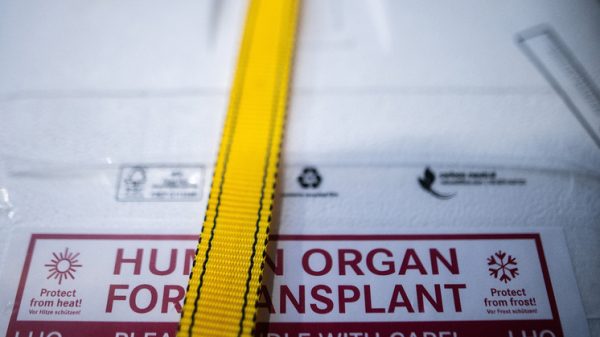 Jeremy Hunt aims to equalize the benefits enjoyed by countries with different environmental standards. Photo: Thomas Creech/ZUMA Press/Cover Images
Jeremy Hunt aims to equalize the benefits enjoyed by countries with different environmental standards. Photo: Thomas Creech/ZUMA Press/Cover Images
Jeremy Hunt is facing a backlash from senior Tories over his plans to copy the European Union by introducing a border carbon tax due to Brexit.
On Thursday the Chancellor will set out proposals to introduce a new green tax on a number of areas where goods are imported into the UK.
Additional tariffs will apply to products such as steel, glass and ceramics if they come from countries with lower environmental standards .
A group of economists estimated the plan would reduce GDP per capita by 1.5 per cent over a five-year period, costing him £600 per person.
Hunt has been urged to stand his ground.
Tory MPs are wary that the plan is being implemented. without due consideration to ensure the UK complies with EU trade policy.
Brussels is rolling out its Carbon Border Management Mechanism (CBAM), which is now set to impact UK exporters.
The tax aims to equalize the benefits of countries with different environmental standards by raising the prices of their goods.
Conservatives are calling on Mr Hunt to stand firm, warning his plans will force Britain into constant compliance with EU bureaucratic red tape.
Sir Jacob Rees-Mogg said the mechanism would undermine Brexit. Photo: Paul Grover for Telegraph
Sir Jacob Rees-Mogg, a former business secretary, said the move represented a “stealth overhaul” that would “undermine Brexit.”
“CBAM is a direct tax that will raise the cost of living in pursuit of expensive green ideology,» he said.
«The pockets of the British people must be protected from the side effects of such a large and undemocratic tax.
«I call on the Government to abandon these economically destructive plans and help the British people who continue to struggle with the cost of their lives.»
Lord Frost, the former Brexit negotiator, said he was «very concerned» about the plans to put «a huge and unnecessary burden on the British people.»
He said: «This is not taking back control — instead the government is choosing to relinquish it.
«It will damage our economy because increases in prices for significant imported goods. And it will impact our ability to negotiate other trade deals around the world.
“It makes no sense to drive industry out of our country with a zero-emissions policy that significantly increases energy costs, and then pay again when we import products we used to make ourselves. It's the worst of all worlds.»
Ministers will begin consultations on Thursday on how to introduce the new tax, having already announced their intention to move forward.
It will last at least 12 weeks and is expected to outline a range of options on which experts and industry representatives will be invited to give their views.
Act to minimize trade frictions
There is a widespread expectation that the government would choose the same model as the EU to minimize trade frictions with Europe.
In this scenario, the tax would cover a wide range of goods that are carbon intensive. intensive production, including steel, fertilizers, ceramics, glass and cement.
The Economic Growth Commission, a group of economists assembled by former prime minister Liz Truss, warned the chancellor against copying Brussels' plan.
p>
This is forecast to reduce per capita GDP growth by 1. 5 percent for five years. The UK's border carbon tax is due to come into force in 2027.
“Will lead to complacency and stagnation in the UK.”
Shanker Singham, its co-chair, said: “Replicating the EU CBAM would be costly for the UK economy.” and it is not necessary to achieve the target of tackling carbon leakage.
“We are concerned that this will increase costs for the UK consumer on top of historically high energy costs, reducing the purchasing power of the average person. and disposable income, which in turn will lead to disincentive for consumers and further calm and stagnation of our economy.»
A Treasury spokesman said: «It is true that carbon-intensive products from overseas face a price tag , comparable to the price paid if the goods were made in the UK, giving industry confidence to invest in the UK in the knowledge that their decarbonisation efforts will not be undermined.
“Initial costs on CBAM are expected to be small and have a negligible impact on inflation. , with CBAM products representing only a small proportion of average UK industry costs – estimated to be less than 1 percent overall.”






















































Свежие комментарии